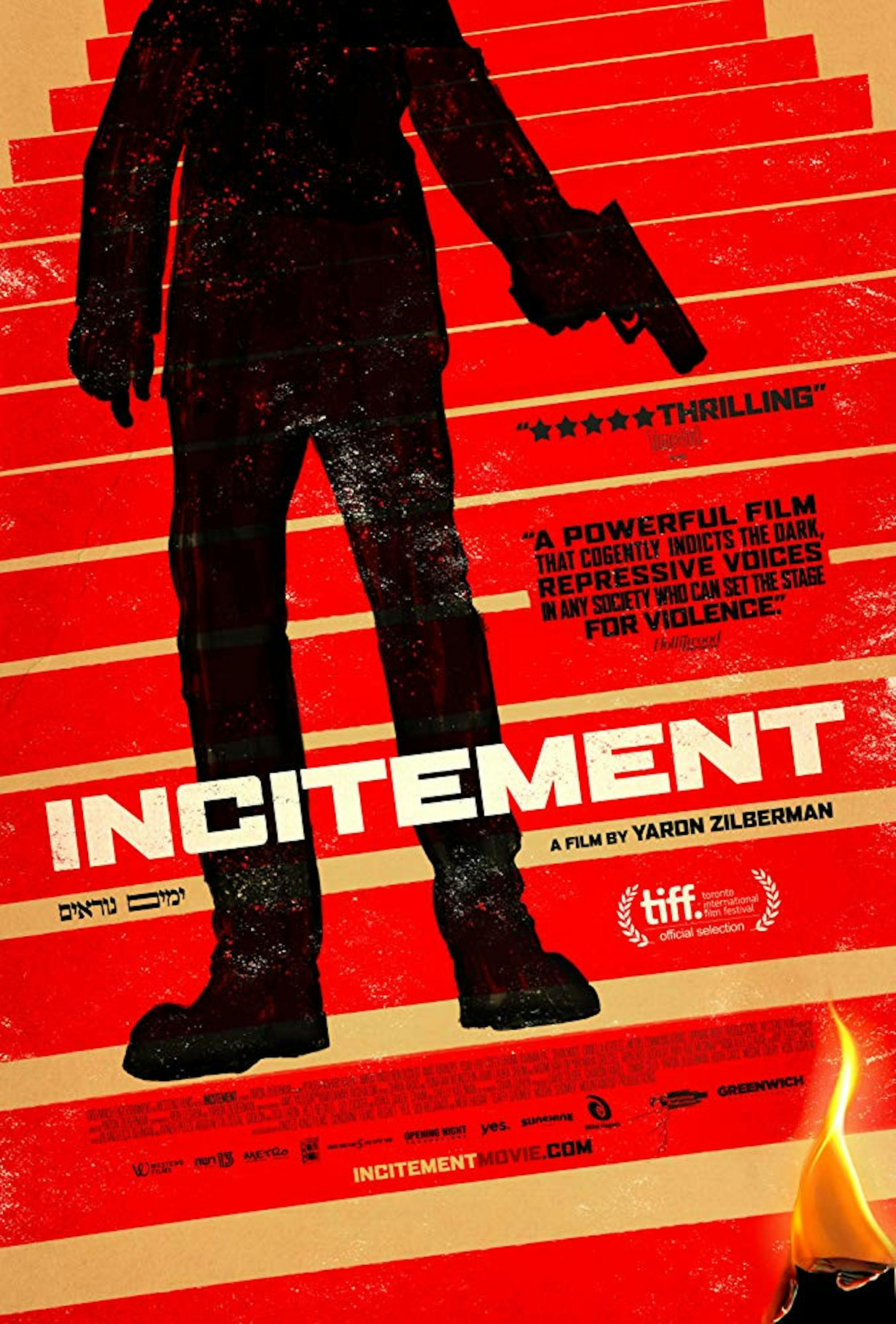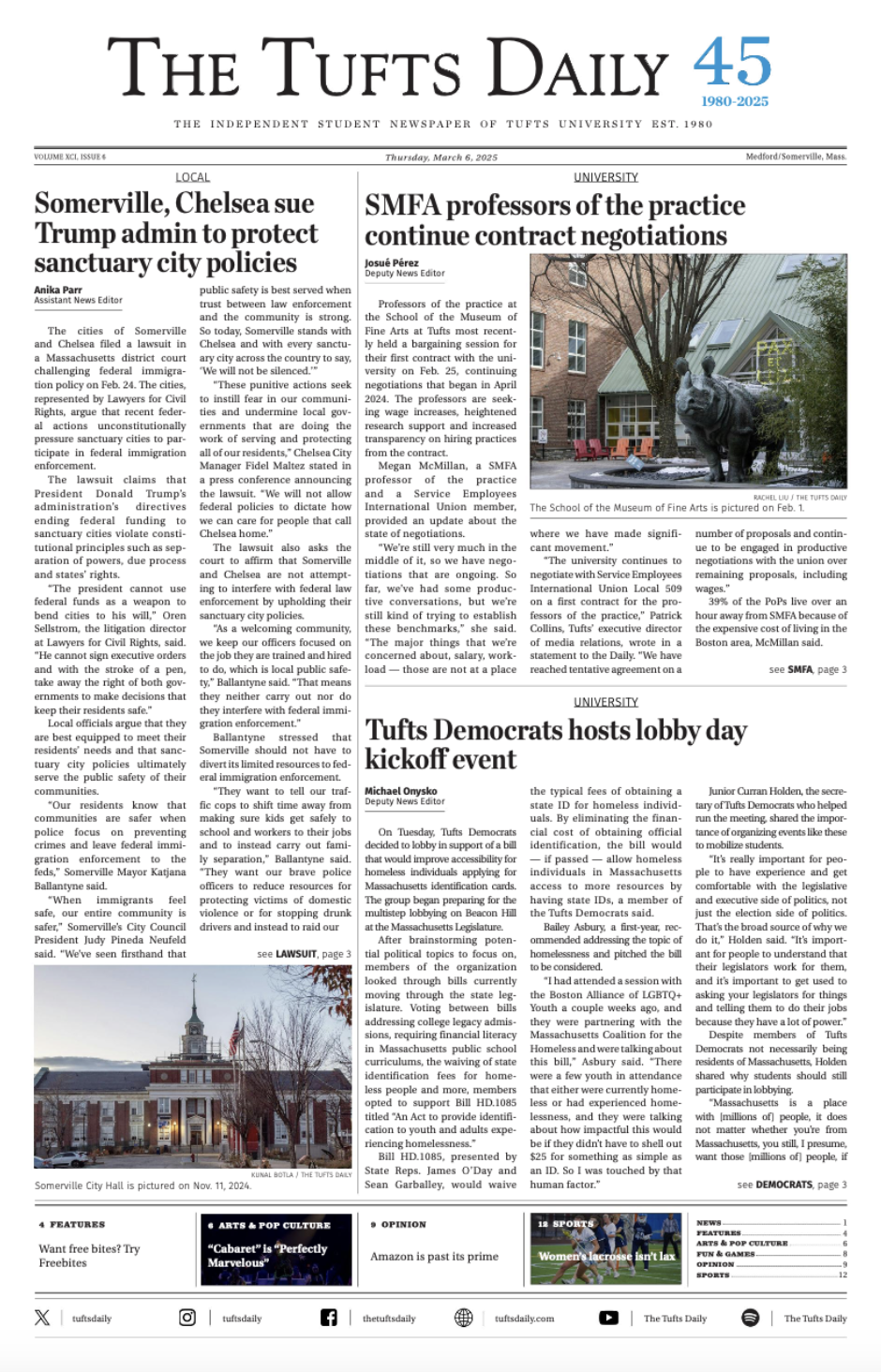The first time that television footage of Benjamin Netenyahu appears in the Israeli docudrama“Incitement” (2019), the impact of his presence takes more than a moment to register. The film is not his story; it instead details the evolution of the right-wing extremist Yigal Amir in the year leading up to his Nov. 4, 1995, assassination of Prime Minister Yitzhak Rabin. Still, our discomfort at the growing role Netenyahu takes on in the film’s second half factors neatly into the plan of co-writer Ron Leshem, who never intended to make a movie solely about the past.
“It was never a film about 1995,” Leshem said in an interview with the Daily ahead of a screening and Q&A this weekend at the Kendall Square Cinema. “It’s about today … it’s about everywhere — how people are losing faith in democracy and how the politics of hate are taking over.”
According to Leshem, showcasing Amir’s assassination of Rabin in a vacuum would have been illogical. As he observes, the events of the 1990s kick-started the process that has landed Israel into the political crisis unfolding in the nation right now, as voters headed to the polls on Monday for the country’s third election in 11 months.
“What we had in 1995 in Israel, where hundreds of thousands of people were shouting the Prime Minister is a traitor, or even death to the Prime Minister, that’s what you’re seeing all over the world today,” he explained. “It’s much deeper than just Netenyahu … young voters in Israel are turning to the right and turning to extremism and racism.”
Leshem, an Israeli screenwriter and novelist who also created “Euphoria” (2012–13) and serves as an executive producer on HBO’s 2019 adaption of the series, sought to capture a holistic picture of the society that incubated Amir as a would-be assassin. “Incitement” subsequently takes a sweeping view of the series of small nudges along Amir’s journey to extremism.
“[Amir’s] anger is not just toward the left; it’s at how his family has been treated socioeconomically … there is a basis to his inferiority complex,” Leshem said. “It’s what his mother was teaching him from day one, when she says, ‘this girl will never accept you because you’re not of their tribe’ … we show that she’s right.”
Unusually, the religious and philosophical underpinning that leads Amir to assassinate Rabin is placed under a microscope in “Incitement.” Several scenes explore Amir and his fellow students at Bar-Ilan University consulting rabbis about the ancientTalmudic arguments of the Law of the Pursuer and Law of the Informer. Amir cited these arguments in his defense, claiming they permitted him to kill Rabin for signing the Oslo Accords, the terms of which he believed endangered the Jewish people. In featuring these conversations so prominently, Leshem sought to underscore what he observes as the dangers of a growing shift toward theocracy in Israel over the last decades.
“What was so incredibly frightening is what, when [Amir] was caught, what he was afraid of,” Leshem said. “He was afraid that someone else would kill the Prime Minister before him … he heard hundreds of thousands of people … crying out for change, for a Messiah, and he thought, ‘I’ll be this Messiah.’”
Though Leshem and director Yaron Zilberman never interacted directly with Amir in the process of making “Incitement,” they did correspond with researchers who interviewed him in prison. In the views espoused by Amir, who still maintains that his actions were justified by Jewish law, Leshem sees the logical conclusion of a belief system shaped by inflexible, unwavering adherence to the letter of scriptural tenets.
“We didn’t want to use his phrases … but everything that is written [comes from] things that he said,” Leshem said. “He was full of anger toward settlers because he felt they’re not radical enough … He thought they’re shouting that someone should kill this prime minister … but choosing their words more gently and expecting someone else to do the dirty job for them.”
Leshem expected the hotly-debated subject matter of “Incitement” to stir up a major controversy in Israel upon its release. He and the other filmmakers were instead surprised by the positive reaction to the film in Israel, where it was selected as the nation’s official submission for this year’s Academy Award for Best International Feature Film.
“We were quite sure the right would call for boycotting the film,” Leshem recalled. “But most of the press was calling it a must-see film.”
As Israel voted once again, Leshem has now come to view the reaction to the film as a bellwether for the nation’s next political direction.
“It’s trying to create a dialogue within the Israeli society,” he said. “A kind of national reckoning, trying to say, ‘Is [this] the vision you have for the future of Israel?’”
In 'Incitement,' co-writer Leshem sees Israel's political path traced

A promotional poster for "Incitement" (2019) is pictured.





